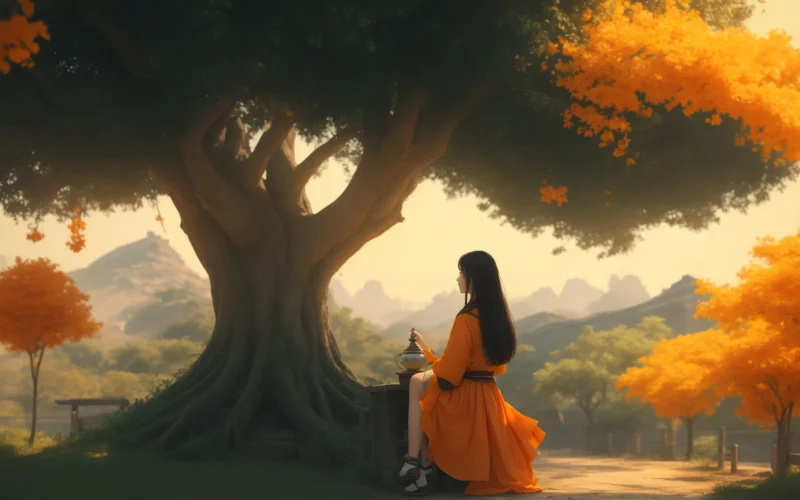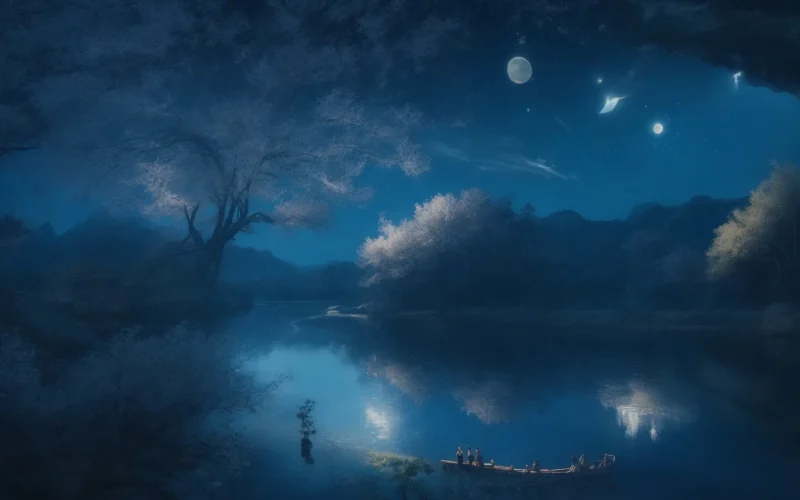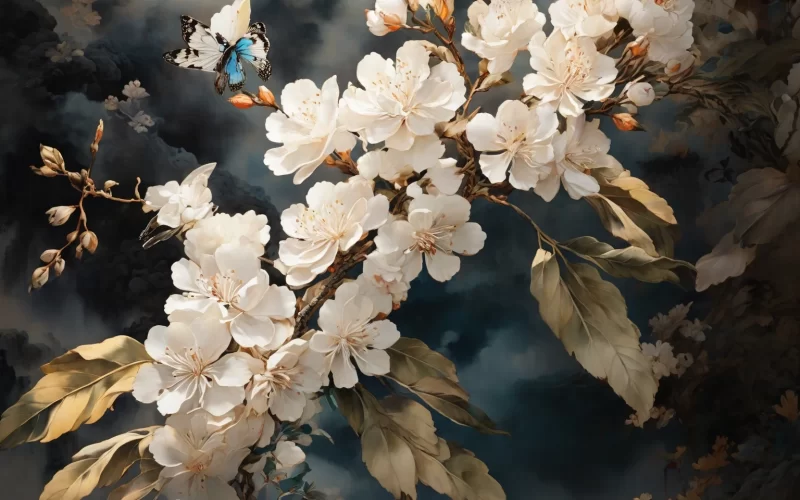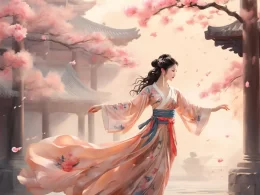Here, south of the Yang-tsze, grows a red orange-tree. All winter long its leaves are green, Not because of a warmer soil, But because its nature is used to the cold. Though it might serve your honourable guests, You leave it here, far below mountain and river. Circumstance governs destiny. Cause and effect are an i nfinite cycle. You plant your peach-trees and your plums, You forget the shade from this other tree.
Original Poem
「感遇 · 其七」
张九龄
江南有丹橘,经冬犹绿林。
岂伊地气暖,自有岁寒心。
可以荐嘉客,奈何阻重深!
运命唯所遇,循环不可寻。
徒言树桃李,此木岂无阴?
Interpretation
Composed around 739 CE after Zhang Jiuling's demotion to Chief Secretary of Jingzhou, this poem reflects the political climate where Emperor Xuanzong favored sycophants like Li Linfu over principled officials. Drawing upon the orange tree as metaphor, the poet laments unrecognized talent while affirming his unyielding integrity amidst adversity.
First Couplet: « 江南有丹橘,经冬犹绿林。 »
Jiāngnán yǒu dān jú, jīng dōng yóu lǜ lín.
South of the Yangtze grows vermilion orange— Through winter's trials, its grove stays evergreen.
The poet establishes his botanical emblem: the orange that retains vitality despite seasonal hardships, symbolizing steadfast virtue in political exile.
Second Couplet: « 岂伊地气暖,自有岁寒心。 »
Qǐ yī dì qì nuǎn, zì yǒu suì hán xīn.
Is this just the southland's temperate air? No—its heart resists the frost's despair.
A rhetorical rejection of environmental determinism. The "frost-resistant heart" becomes a declaration of moral autonomy—the poet's constancy stems from inner conviction, not fortunate circumstances.
Third Couplet: « 可以荐嘉客,奈何阻重深! »
Kěyǐ jiàn jiā kè, nàihé zǔ chóng shēn!
Its fruit could grace the noblest feast, Yet mountains bar its worthy yield.
The orange's unrealized potential mirrors the poet's obstructed talents. "Mountains" symbolize bureaucratic barriers preventing worthy service.
Fourth Couplet: « 运命唯所遇,循环不可寻。 »
Yùn mìng wéi suǒ yù, xún huán bù kě xún.
Fate follows courses none discern— Cycles turn beyond our ken.
A philosophical resignation to cosmic unpredictability, where "cycles" suggest the dynastic rise and fall that supersede individual merit.
Fifth Couplet: « 徒言树桃李,此木岂无阴? »
Tú yán shù táo lǐ, cǐ mù qǐ wú yīn?
Must we plant only peach and plum? Can this tree give no cooling shade?
The closing challenge critiques society's preference for showy blossoms over substantive shade-giving trees.
Holistic Appreciation
This botanical allegory progresses through five movements: resilient nature, moral essence, obstructed utility, cosmic resignation, and social critique. The orange tree's journey from natural wonder to political metaphor demonstrates Zhang's fusion of Confucian service ethic with Daoist acceptance, all while maintaining literary elegance. The poem balances protest with wisdom, offering both indictment of political favoritism and meditation on fate's inscrutability.
Artistic Merits
Zhang Jiuling masterfully employs the orange tree as a multilayered symbol, evolving from literal plant to moral archetype to political victim. His use of rhetorical questions creates a compelling intellectual progression, while subtle classical allusions enrich the text without pedantry. The five-couplet structure allows each stanza to develop a distinct phase of the argument, culminating in a powerful social challenge.
Insights
The poem presents enduring lessons about integrity and recognition. It argues that true worth lies in inherent virtue rather than external validation, criticizing systems that prize ornamental talent over substantive contribution. For individuals, it models maintaining principles amidst adversity; for societies, it warns against neglecting essential but unshowy virtues. The orange tree's quiet perseverance offers an alternative to both protest and despair—a vision of dignity that transcends political cycles.
Poem translator
Kiang Kanghu
About the poet
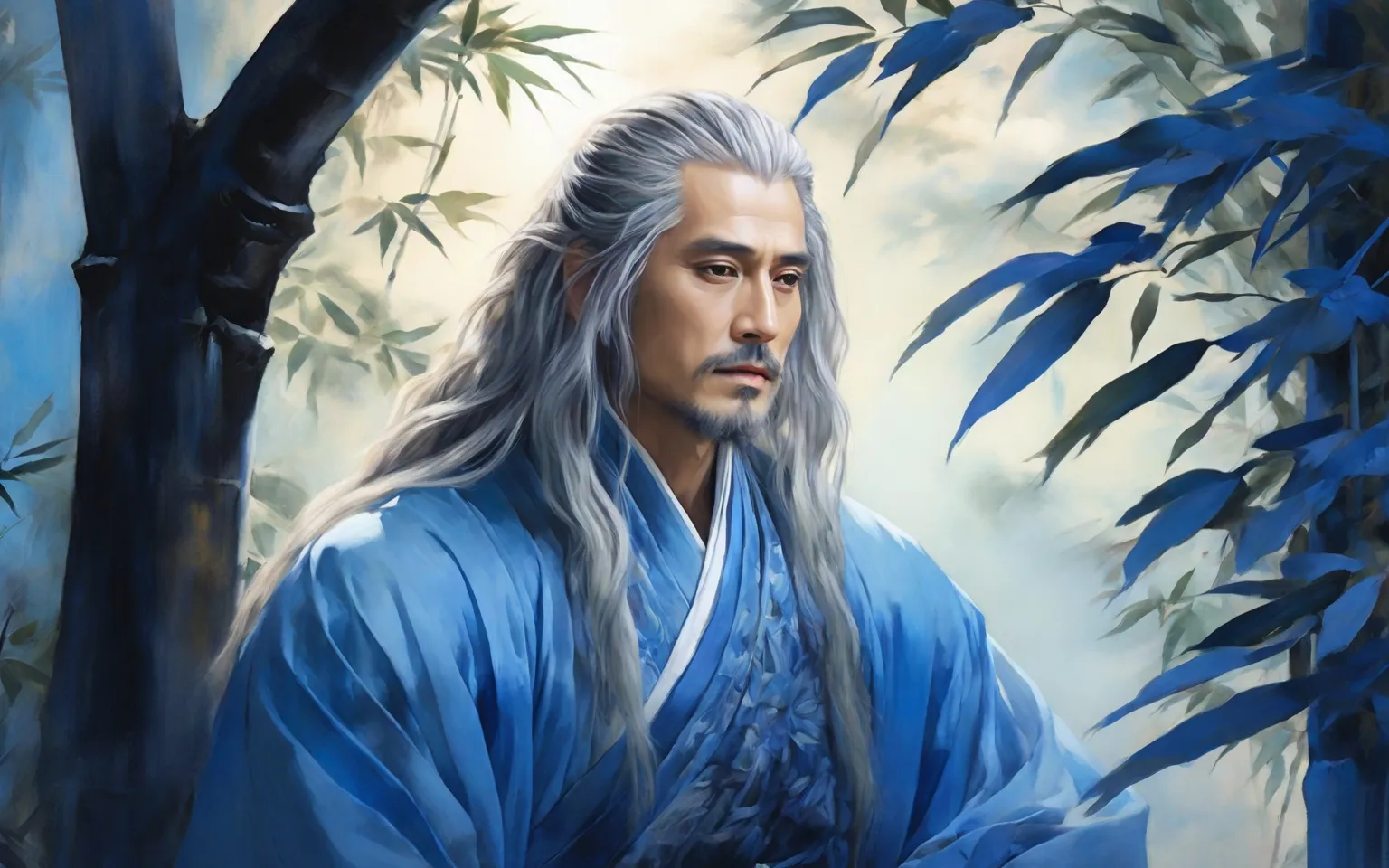
Zhang Jiuling (张九龄), 678 - 740 AD, was a native of Shaoguan, Guangdong. He was the last prime minister of the "Rule of Kaiyuan", and was upright and upright. In 736 A.D., he was ostracized from the court and relegated to the post of Assassin of Jingzhou. He amused himself with literature and history, and wrote a lot of poems that were light, melancholy, and far-reaching.





